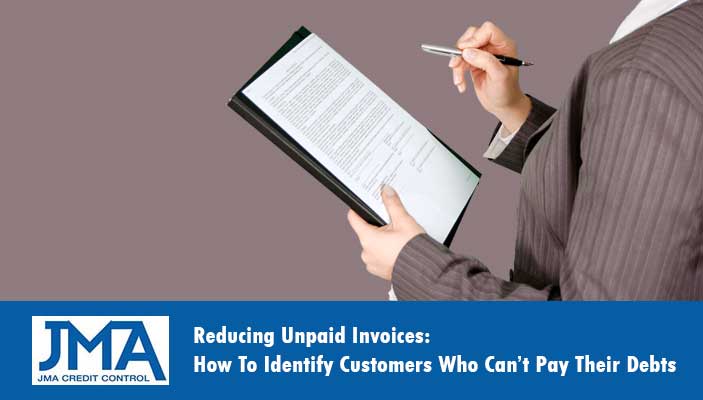
Once an invoice becomes overdue the chances of it being paid in full diminish with every passing day.
In fact recent studies show that invoices that are between 3-5 months overdue are 70% less likely to be paid than those that are 1-3 months over due.
So what does this tell us?
It means that you need to take immediate action once an invoice becomes delinquent to maximise your odds of recovering the debt in full.
An even more effective solution is to closely monitor the financial health of your customers and their businesses as an ongoing practise. This will help you identify any potential red flags that may appear, giving clues that your customer may not be able to meet their financial obligations in the future.
So what are these indicators and what should you do about them? That’s what this article will explain.
Identifying The Red Flags
1. The Company Is Laying Off Staff
When a company starts to downsize its workforce this is usually due to financial problems. It is especially worrisome if a long-term employee or key figure in the company suddenly leaves or is made redundant, as this may indicate they are fleeing a sinking ship or that there are some underlying issues within the business that cannot be resolved.
2. The Company Is Being Sold
Many times a business owner will try to sell a failing business to extract the last little bit of value and profit to repay the time, energy and money they have invested. Of course this is not always the case but if you find that a customer puts their business up for sale all of the sudden, then you should definitely dig a little deeper to find the true motives behind the sale.
(I’ll explain how to “dig deeper” later in this article.)
3. Your Invoices Are Consistently Paid Late
If you’ve had to follow up recent overdue invoices before getting paid then this could indicate your customer is facing some cash flow problems. Many times struggling businesses will make excuses as to why your invoices payments are late, common excuses include…
- They cannot locate your invoice
- They reply with absurd reasons why they shouldn’t have to pay because your product or service was not delivered as promised
- They are waiting to get paid before they can pay you
- The company sends partial payments, not the full amount
- The customer is waiting for a bank loan or funding
All of the above excuses should immediately be investigated to find out if this is a one-off temporary problem or a more systematic issue that is not likely to be resolved.
4. Customer Is Going Through Serious Personal Issues
When dealing with smaller businesses where the owner or manager is the key figure who keeps the business running smoothly, you need to be aware when they are facing serious personal issues.
Divorce, serious illness or other issues that make it hard to contact the owner or key figure could lead to the businesses demise.
Of course this is not always the case and you don’t want to treat a good customer unfairly because they are having personal troubles, but when these circumstances lead to late payment or non contact then it is often a good indicator that you need to be more diligent when chasing up invoices or providing credit.
5. Your Customer’s Industry Or Biggest Customer Shrinking
It is very smart business practice to keep up to date with your customers industry trends, and also know where the bulk of their revenue comes from. If their best customer suddenly declares bankruptcy or starts making large-scale layoffs then it is highly likely that this will have a ripple effect that could squeeze your customer’s revenue and cash flow.
Additionally industry trends can give you a good indication of the future stability of your customers business.
Action Step When Red Flags Appear
Now we have discussed some of the key indicators that a customer may not be able to pay your invoices, let’s look at what you should do when they appear.
1. Investigate The Real Reason For Late Payment
It’s important you find out the truth before making any decisions. Get on the phone, try talk to several different employees, and even visit the business to have a face-to-face chat to see if the story you have is consistent from person to person.
Also if someone you know has recently left the company, give them a call to ask why they left and get an insiders perspective.
2. Reduce Your Credit Limit And Payment Terms
If you discover there are some serious issues with your customer’s cash flow or business operations then you need to be pro-active to protect your interests.
Reducing your credit limit and payment terms, or demanding upfront payment until they can prove they are able to meet all their financial commitments is a simple and effective way to protect your business.
3. Hire A Professional Collection Company
If you have current outstanding debts with a customer who is showing some warning signs of financial difficulty, then it is a smart option to hire a credible and competent debt recovery agency. The sooner you bring in professional debt collectors the better chance you have of getting paid in full before it too late..





















